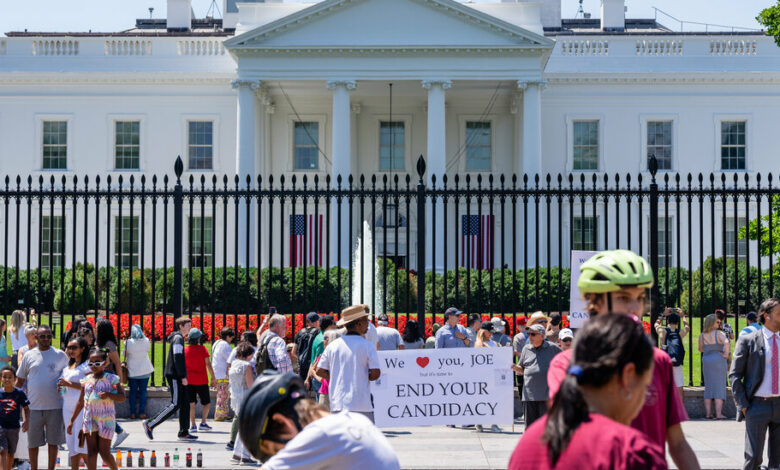If Biden withdraws, how long do Democrats have to choose a nominee?

If President Biden decides to end his reelection campaign, the Democratic Party would technically have until its convention the week of August 19 to nominate another standard-bearer. But for practical purposes, the deadline would be about two weeks earlier.
That’s because Ohio requires candidates to be legally certified by Aug. 7 to be placed on the state ballot. That issue has been on Democrats’ radar for months — it’s a problem, even for Mr. Biden — and the Democratic National Committee has said it will hold a virtual vote before the convention to meet the deadline.
Ohio is not expected to be competitive in November; the state voted for former President Donald J. Trump by about eight percentage points in 2016 and 2020. But a lack of a presidential candidate on the ballot would likely depress turnout, which is crucial for Democrats on lower ballots, such as Sen. Sherrod Brown.
Earlier this year, there were concerns that a similar problem could occur in Alabama. But lawmakers there concluded to pass a bill which extended the state’s deadline to accommodate the timing of the Democratic convention. Ohio lawmakers did not.
If Democrats nominate Biden in a virtual roll call vote and later change course, things will get even more complicated.
In the event that a ticket of Mr. Biden and Vice President Kamala Harris were certified to appear on the state ballot and Mr. Biden later withdrew, it was not clear whether Ms. Harris would be able to receive votes for president based on the fact that she was already on the ballot for the vice presidential position. The Ohio secretary of state’s office did not immediately respond to a request for clarification on that point.
The Heritage Foundation, a right-wing think tank, has indicated that it would take legal action against a replacement.




